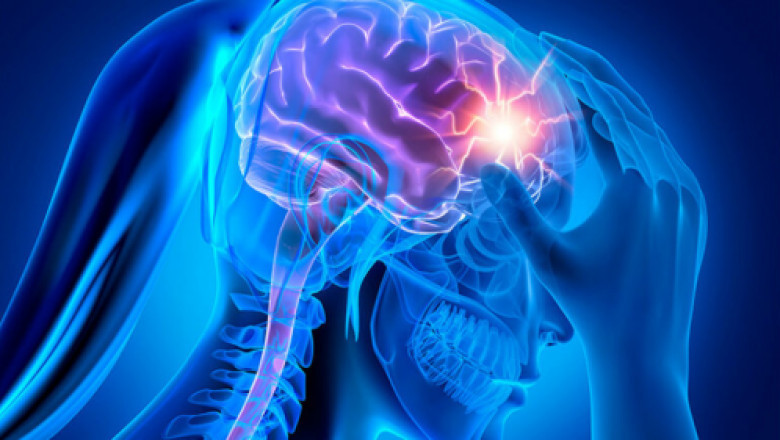views
Concussions on the Rise
Concussions have become a growing concern across many industries in recent years. Data shows reported concussions among employees have increased by nearly 25% over the past decade according to statistics from the Bureau of Labor. The rise is being attributed to better identification and reporting of mild traumatic brain injuries that may have gone undocumented in the past. However, experts believe there are also underlying factors contributing to the higher incidence rates.
Physical Demands and Accident Risk
Many jobs require employees to engage in physically demanding tasks that put them at risk of head impacts and falls that can cause Concussion. Construction work, warehousing, manufacturing, and industries like mining and oil/gas extraction often involve heavy lifting, operating heavy machinery, working at heights, and other hazards. The risk of accidents and subsequent concussions is inherently higher in such environments. Studies show workers in these sectors experience concussion rates 2-3 times higher than average. Preventive efforts need to focus on improved safety practices, use of protective gear, and limiting risks wherever possible through engineering and administrative controls.
Mental Strain and Fatigue
The stresses of long workdays, shift work, tight deadlines, and high-pressure environments can also play a part. Mental fatigue is linked to decreased alertness, attention lapses, poor decision making, and slower reaction times - all risk factors for on-the-job accidents. Concussions may not always stem from direct physical impacts. Indirect causes like falls from ladder or scaffold due to a momentary lapse in concentration can be hard to pin down but could be work-related. Employers need fatigue management programs to help mitigate such risks.
Sports and Recreational Activities
Participation in contact/collision sports is also surfacing as an increasingly common contributor, especially among younger male employees. Sports-related concussions sustained during weekend recreational activities may initially go unreported but could cause issues like migraine or concentration problems that linger into the next work week. This highlights the need for education around recognizing and promptly reporting even mild head injuries from all causes to facilitate proper treatment and return-to-work planning.
Lingering Effects and Lost Productivity
While most concussions resolve within days or weeks, studies show up to 20% of those with mild TBI experience persistent post-concussion symptoms for months or even years. Common issues include headaches, dizziness, sensitivity to light/noise, fatigue, difficulty concentrating and retaining information. Sufferers may struggle with cognitive tasks like multitasking, decision making, and problem-solving - core functions for many jobs. Lost productivity from concussion-related absences, errors and reduced performance is a major concern for employers.
Long Term Health Risks
There is also evidence that repetitive mild brain trauma, even from concussions not diagnosed as severe or complicated, may increase risks of long term neurological consequences. Conditions like chronic traumatic encephalopathy (CTE), a progressive degenerative disease found in athletes and military veterans, are linked to repeated head impacts and concussions over time. While CTE can currently only be definitively diagnosed post-mortem, emerging research underscores the importance of minimizing concussive and sub-concussive head impacts for all at-risk populations through proper protocols and gear use.
The Way Forward
Clearly, employers have a stake in concussion prevention, awareness and management. Multi-pronged strategies are needed involving education, hazard controls, return-to-work accommodations, and a culture that promotes prompt injury reporting without fear of repercussions. Wellness programs promoting lifestyle habits to enhance resilience could help too. As the true costs of lost productivity and long term health impacts become better quantified, proactive concussion mitigation measures are likely to increasingly make good business sense too. Coordinated efforts across industries will be integral to making progress on this growing workplace health issue.
Get More Insights On – Concussion
Get this Report in Japanese Language:
Get this Report in Korean Language:
Resources –
Scientists Develop Concussion Detecting System for Helmets
What are the Key Developments in the Concussion Market?
Preventive Measures and Public Awareness Campaigns for Concussions
Advancements in Concussion Diagnosis and Treatment Technologies
The Impact of Concussions on Healthcare Systems
About Author:
Priya Pandey is a dynamic and passionate editor with over three years of expertise in content editing and proofreading. Holding a bachelor's degree in biotechnology, Priya has a knack for making the content engaging. Her diverse portfolio includes editing documents across different industries, including food and beverages, information and technology, healthcare, chemical and materials, etc. Priya's meticulous attention to detail and commitment to excellence make her an invaluable asset in the world of content creation and refinement.
(LinkedIn- https://www.linkedin.com/in/priya-pandey-8417a8173/)






















Comments
0 comment